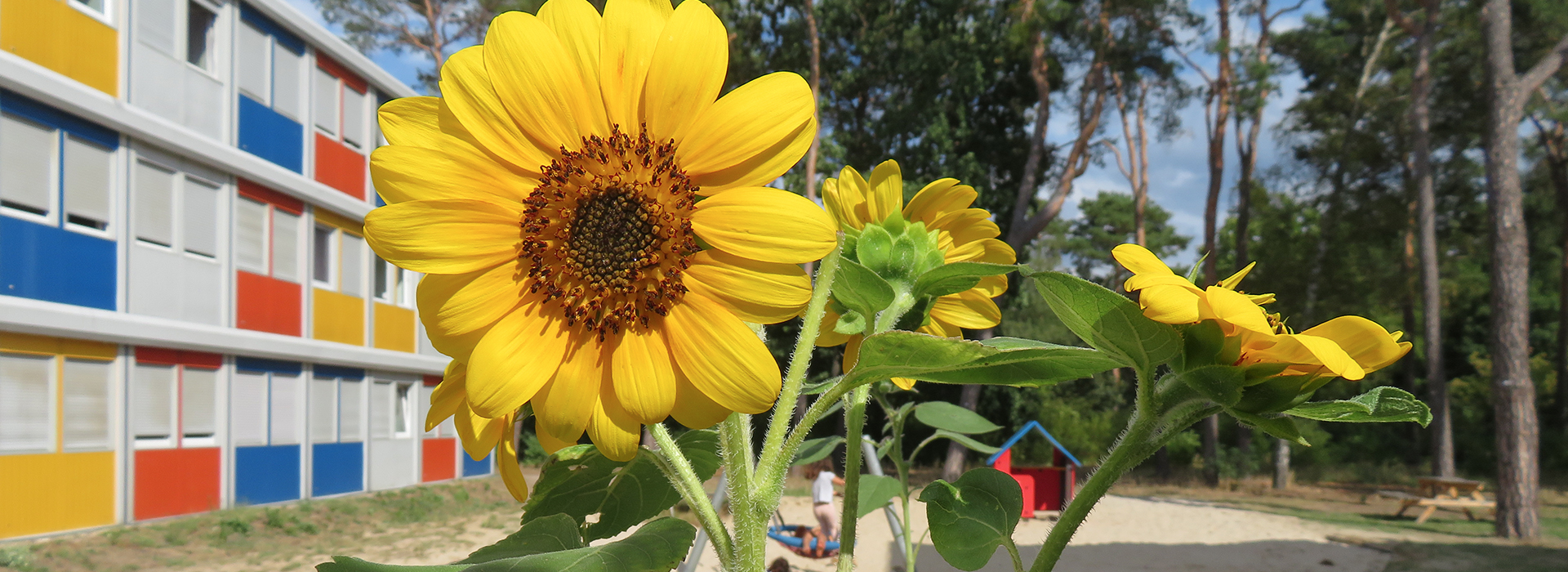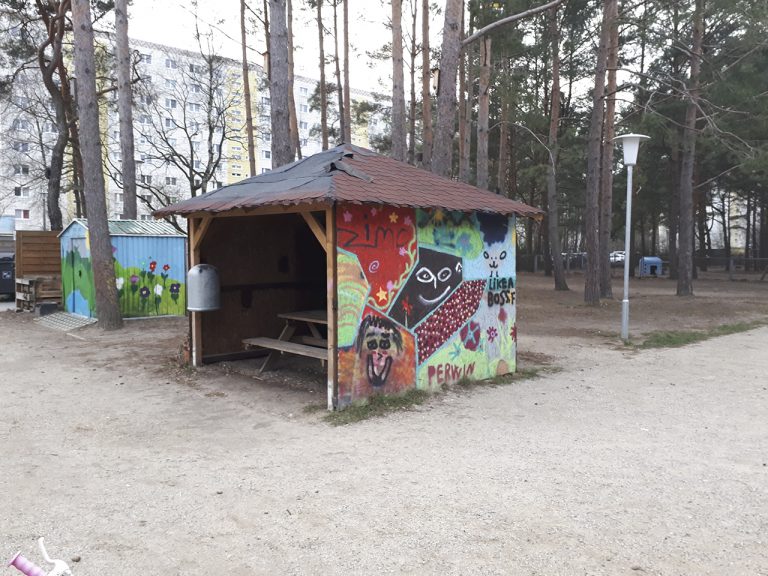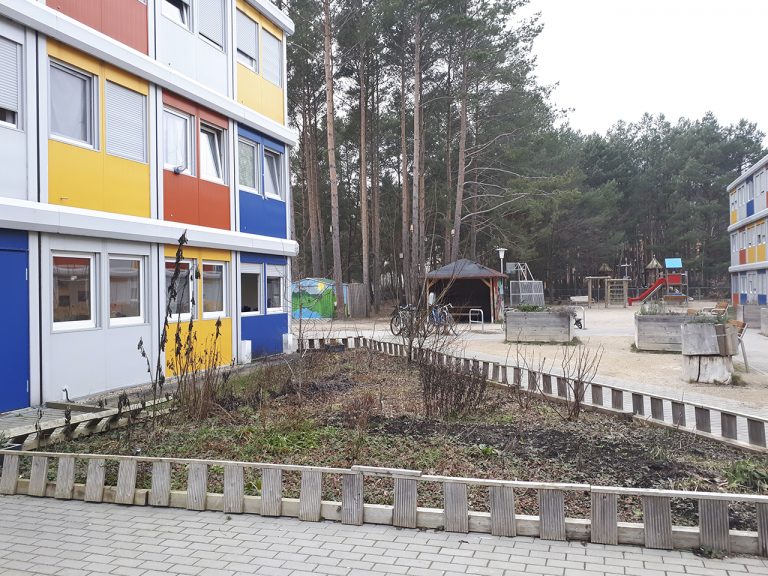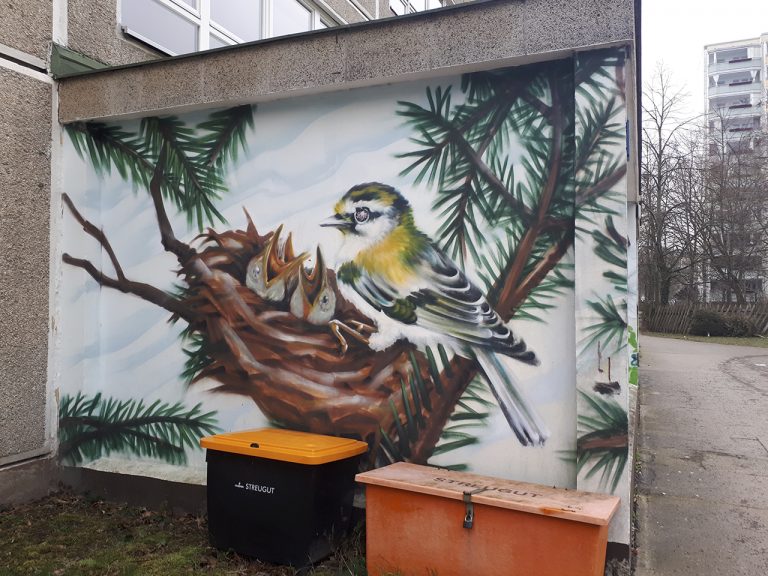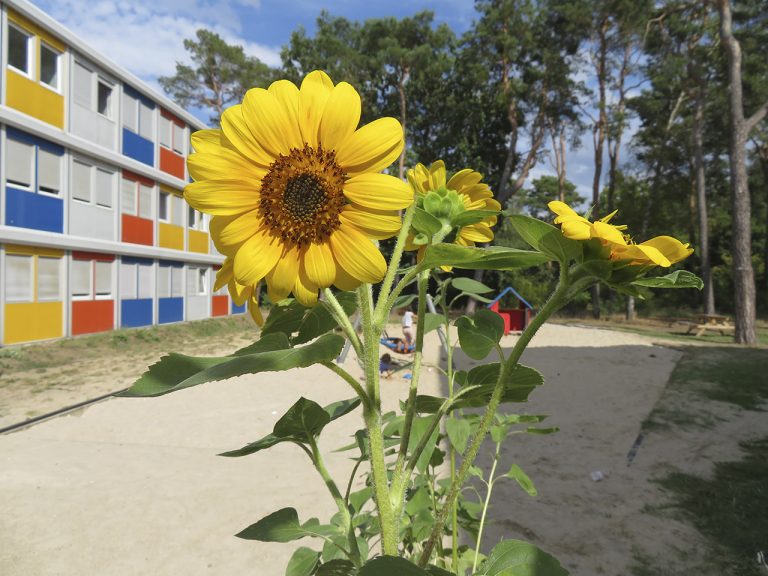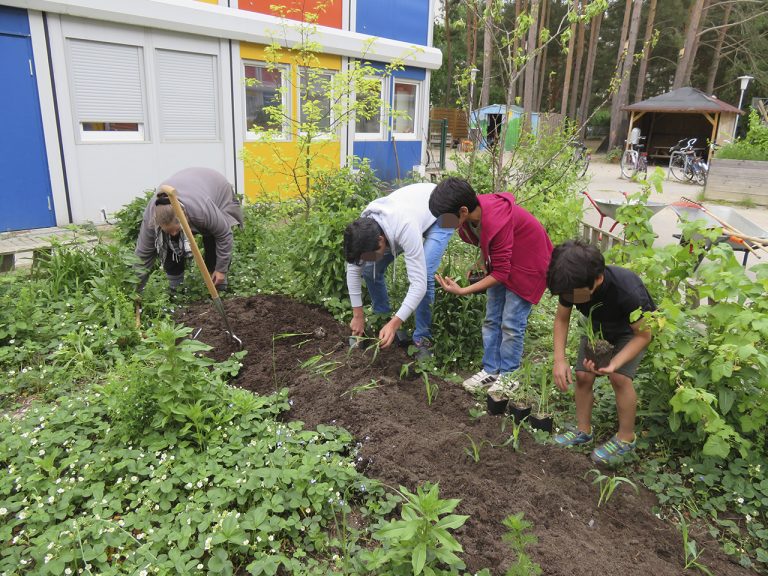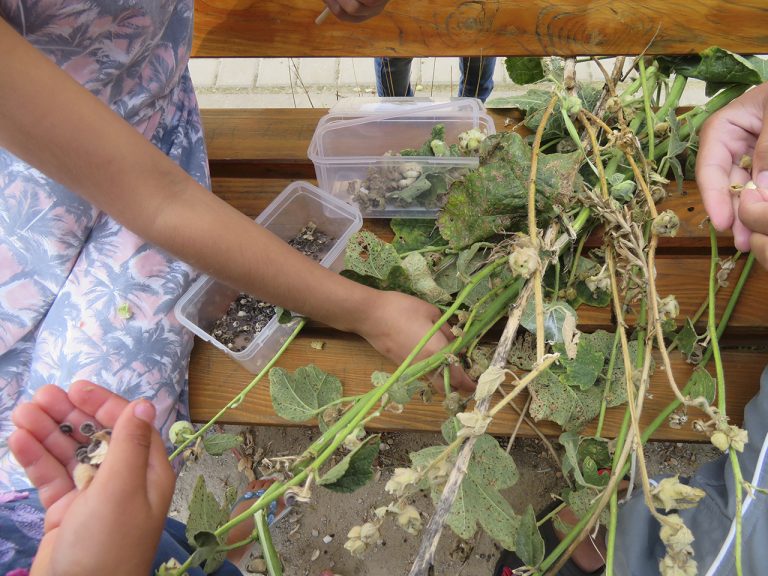Details of the initiative
The garden’s aim is to facilitate encounter, to establish dialogue and an open-minded community. The garden did not follow a specific integrated concept when it began and the managers did not receive any training regarding intercultural issues. However, their personal backgrounds, for instance intercultural marriage and an open and curious mind-set allowed establishing a garden appreciated by the local community, and its active gardeners. The members of the garden meet every Friday, and all members are considered equal. There are no hierarchies in the garden. Even though the garden is open to all members of the temporary housing facility, the active garden group consists predominantly of men and children. Besides the horticultural components of the garden, the garden serves as a form of therapy, as a place for recreation and dialogue. The dialogue takes place informally during the work, but also in a more formal manner in a weekly neighbourhood café, where local residents visit the garden and the temporary housing facilities.
The garden managers consider two forms of activities as important to establish a community. These are horticultural activities such as establishing and arranging the raised beds as well as conversational activities such as the neighborhood café. The managers indicated that they view their activities as a rather creative process, which is not so strictly organised. Yet, they emphasise that within the group, people organise more intuitively according to their skills and interest, while the managers organise the materials for the activities.
As one of the managers is a professional gardener, she uses her professional network to acquire resources and raw materials, shrubs, trees, seedlings, container, soil and fertiliser, while the other manager, a journalist by profession, gathers financial donations, is writing applications and is filling forms to receive financial support. Both types of skillsets are necessary for the garden activities. The managers further explain that any activity should include time for conversation, reflection and communal meals, as the intentions of these activities are community-building. As necessary competences they point out an open mind, patience, crafting and certain horticultural skills. They agree that these competences do not need to be embodied in one person, as skills are distributed in the group. People learn from each other and develop over time.
The garden is seeking cooperation with other intercultural gardening groups in Berlin to facilitate further exchange. However, any attempts have not yet been successful. A regular exchange takes place among members of the garden and a retirement home. In addition, school classes or other visitor groups join the garden and help on construction, decoration and refurbishment activities.

 English
English  Deutsch
Deutsch  Español
Español  Svenska
Svenska 